How I’ve Ben
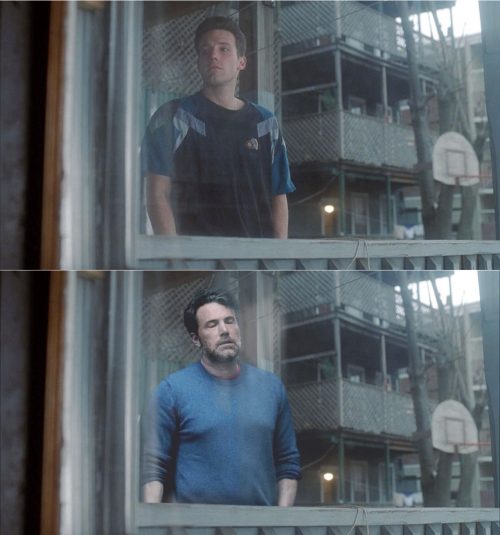
Look, you’re a chill reader, so don’t take this the wrong way but, in a few years if you’re still coming here, scrolling down, hitting refresh, looking for comments, I’ll fuckin’ kill ya. That’s not a threat, that’s a fact, I’ll fuckin’ kill ya.
No. No, no no no. Fuck you, you don’t get to say you’re bored, esoterically inclined, nostalgic for some shit storms. Cuz tomorrow I’m gonna wake up and I’ll be fifty, and I’ll still be doin’ this shit. And that’s all right. I got time. But you’re an actual writer, like with a hardbound novel with blurbs n’ shit, mildly reviewed on Amazon because of those one-star review pricks complainin’ that the delivery was late. I’d do fuckin’ anything to have what you got. So would most of these fuckin’ guys. It’d be an insult to us if you’re still here in a year. Hangin’ around here is a fuckin’ waste of your time.
Oh, I don’t know that? Let me tell you what I do know. Every night I bust out a few drafts of some shit, get tanked and hate follow your twitter. You post some way too serious shit, I have a good laugh and that’s great. But you know what the best part of my day is? It’s for about ten seconds after this post is tweeted and I think maybe you’ll like it. Like an actual important someone. No retweet, no reply, no nothin’. Just a simple heart. I don’t know much, but I know that.
Mark’s movie
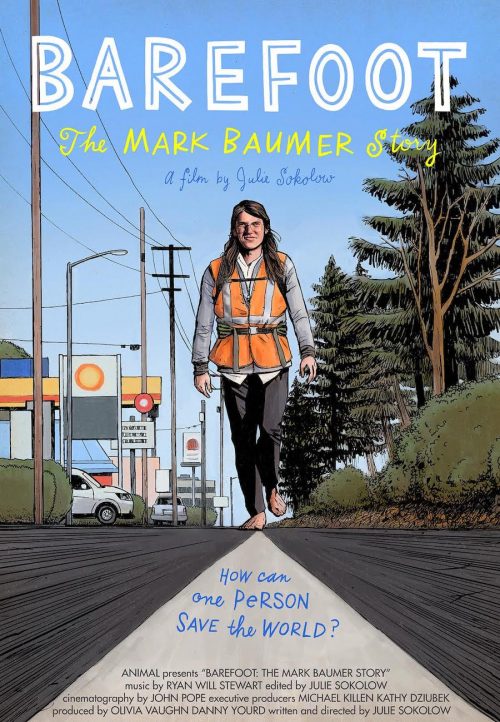
1091 Pictures has picked up Barefoot: The Mark Baumer Story for a digital release on October 27th (via Deadline). Filmmaker Julie Sokolow compiled a bunch of Mark’s youtube videos, alongside interviews with family and friends, to make the film. You can check out more info here.
The last time I saw Mark was two years ago during an ayahuasca ceremony. I had just puked, and he showed up to say hey what’s up, i miss u. He said that death is a kind of expansion, an expanding into pure light and acceptance and love, and we’re all just energetic beams of light walking around, so it’s cool because we can basically hang out with him whenever we want.
But I still miss him buttloads, all the time.
Tales from the Loop, the tabletop roleplaying game
Hi. It’s okay. It’s just me.
Matthew. I used to write for this site.
Hey, I’ve given up on writing books in order to spend my free time focusing on table top role-playing games!
(Maybe actually I’ve given up on writing books in order to be a dad, but anyway whatever.)
So, yeah. I have the dice and everything. I have two shelves full of TTRPG books now. It’s a pretty nice-looking couple of shelves. I read interesting indie modules in my spare time and try to think about what makes them work and what makes them not work, sort of like I used to do for short stories and novels. I get together with friends online one night every week and play games with them, now that we are all stuck at home almost all of the time. And sometimes I run games, too.
Like: In February, when people could still gather together in groups, I ran a game of Tales from the Loop for my group.
Tales from the Loop is an RPG inspired by those consciously retro sci-fi paintings by Simon Stålenhag that became popular five or six years ago, which depict an alternate 1980s. In the game, the players are young adults living in those paintings—a world of dimensional rifts, AIs, big cell phones, Huffy bicycles, robots, boom boxes, Trapper Keepers, vehicles that float on massive magnetic drives, and adults who don’t listen to them.
*
My first roleplaying game was, like most people, Dungeons & Dragons. My parents bought me the Basic and Expert boxed sets when we first moved to Upper Michigan in the mid-’80s. For a while, I didn’t have anyone else to play with—my brother was older than me and not interested, and I didn’t have a lot of friends yet—so the only person who would play with me was my dad. We played once. He was pretty nice about it, but I could tell he wasn’t interested. When we had had family game nights before then, he never participated.
It wasn’t really his thing. But he tried once, anyway, with me, because he knew I was upset that I didn’t have anyone else to play with.
Eventually I found a group of others to play with in high school. And then a couple of folks to play with in college.
And then I stopped for many years, until I was given the opportunity to write a novel for the RPG company Wizards of the Coast.
That got me playing again. And I have been pretty regularly ever since.
*
In contrast to a lot of the better known tabletop roleplaying games, Tales is very simple, mechanically, involving only a few numbers and pools of six-sided dice thrown to succeed at overcoming obstacles. Like this: A character must convince someone to not beat them up, hop a fence, hack a computer, or escape an inter-dimensional monster. The player grabs a couple of six-sided dice—the number of which is determined by their natural abilities (represented by ability scores), skills (which they can spend points on during character creation), and circumstances. They role, try to get at least one six, and succeed if they do. If they fail, the story gets complicated. The game is less focused on charts and numbers and bonuses and balanced mechanics than the roleplaying games one might already be familiar with. It’s in the family of roleplaying story games, heavier on scene building and collaboration than on crunch and tactics.
None of the kids die in Tales from the Loop. The characters are the protagonists in a story that is told in scenes, everyone at the table collaborating to make a story reminiscent of a movie, so like an ’80s kid sci-fi movie, there is peril and pathos, and kids can be broken, but they don’t get killed. The rulebook is more focused on storycraft than rules, and in places reads more like a book on screenplay writing than on wargaming. Some roleplaying games drill down on rules, looking to end arguments at the table over rules by codifying everything. Tales minimizes rules to minimize disagreements.
In our group, I run Tales from the Loop. I’m the Gamemaster. Instead of playing one of the kids, I write the skeleton of a scenario, create the setting, populate it with characters for the players to interact with, and then set up the win condition. Like: Here’s the place where you live, here’s the problem, here are some people who can maybe either help or hinder you as you try to solve the problem, here’s the countdown clock and the pace at which you should go, and here’s what happens if you do or don’t solve it. And then I walk everyone through the game, play the characters that the players interact with, improvise when they go in an unexpected direction.
It’s nice, during a time when I don’t write much on my own anymore, to have a place to collaborate with others to tell stories.
*
My dad was diagnosed with Stage IV prostate cancer on December 5, 2018. He had been unwell even before then, with serious mobility issues, spinal stenosis, a tremor that we thought might have been Parkinson’s. He hated doctors and had to see them all them time over the years previous to the cancer diagnosis, and apparently had a worrying blood test in 2016—elevated Prostate-specific antigen levels—that he just didn’t follow up on. And then he slipped when my mother was trying to get him out of bed, and found that one of his legs had stopped working. My mom couldn’t lift him. An ambulance was called. He resisted a trip to the ER, but they took him anyway. They did some X-rays and some bloodwork.
A doctor talked to my mom that night and told her that my dad’s PSA levels were really high. She didn’t know what that meant and the doctor didn’t explain. The next day, a nurse mentioned my dad’s prostate cancer, and that’s when she found out what a PSA level was and why it was bad when it was elevated. Or at 4500, like my dad’s was.
*
READ MORE >September 21st, 2020 / 9:38 am
Collages on Shabbos
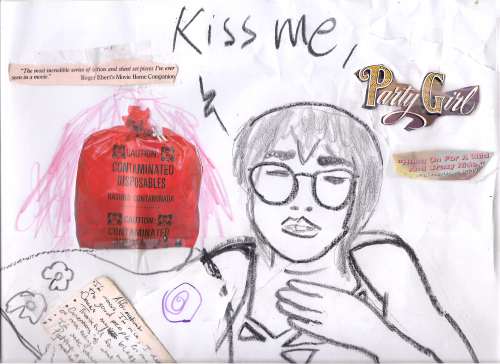
This week’s collage is “Kiss Me, Partygirl” by Pilot Jeanne Gosh.
pilot jeanne gosh is a mother, a friend, and a 30 ft tall wolf. her work has been featured in Spy Kids Review and Voicemail Poems. she enjoys riding the train and lying on the floor listening to someone play video games.
Chogyam Trungpa on Depression
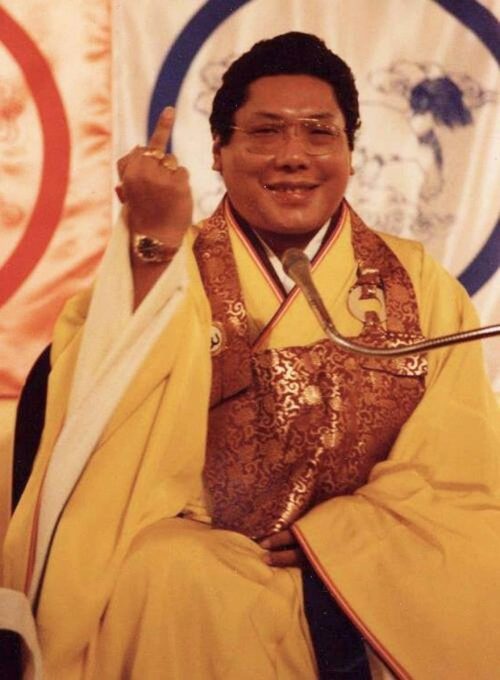
Chogyam Trungpa was a Tibetan Buddhist meditation master. At the age of 20, he witnessed the occupation of his homeland and the destruction of his monastery, and had to flee Tibet and travel for nine months by foot to reach safety in India. He ate his shoelaces and watched his friends die on that journey. 13 out of 300 refugees survived. His teacher had a vision that Trungpa would bring meditation to the West, and so he moved to the United States in 1969. He did coke with Joni Mitchell before showing her a breathwork exercise that inspired her to quit coke altogether, and he taught David Bowie how to meditate. He hung out with hippies and made them burn their weed. He slept with lots of white women, and drank so much booze that he died from cirrhosis of the liver before turning 50. The dude could meditate for weeks without eating and then drink you under the table.
A series of Trungpa’s lectures were published in the book, Cutting Through Spiritual Materialism, where he says things like, “Compassion is a war on want” and “Ego is the monkey of cognition” and “We meditate because clouds are clouds and the sky is blue.” Reading this book during this fuckhole of a year has been an interesting experiment as I oscillate between mindful awareness and wanting to rip my face off. I recommend it. Recently, I came across this answer Trungpa gave regarding how to cope with depression. I found it interesting to think of depression having a kind of ‘texture’, and the idea that there can be great intelligence in the unknowing:
Well, try to relate to the texture of the energy in the depression situation. Depression is not just a blank, it has all kinds of intelligent things happening within it. I mean, basically depression is extraordinarily interesting and a highly intelligent state of being. That is why you are depressed. Depression is an unsatisfied state of mind in which you feel that you have no outlet. So work with the dissatisfaction of that depression. Whatever is in it is extraordinarily powerful. It has all kinds of answers in it, but the answers are hidden. So, in fact I think depression is one of the most powerful of all energies. It is extraordinarily awake energy, although you might feel sleepy.
But, at the same time, you are experiencing tremendous texture, the texture of how the stagnation of samsara works, which is fantastic. You feel the texture of something. That entertainment didn’t work. This entertainment didn’t work. Referring back to the past didn’t work; projecting into the future didn’t work. Everything is made out of texture, so you could experience depression in a very intelligent way. You could relate with it completely, fully. And once you begin to relate with it as texture of some kind, as a real and solid situation which contains tremendous texture, tremendous smell, then depression becomes a beautiful walkway. We can’t discuss it really. We have to actually get into heavy depression and then feel about that.
Where I Was and What I Was Doing When People Close to Me Have Died
In a kitchen, eating Kentucky Fried Chicken.
In front of a computer, playing minesweeper.
In a car, eating Kentucky Fried Chicken.
Standing outside of a Noodles and Company.
In bed, asleep.
Eating a bagel in a cubicle.
TRL (Twitter inteRviews Lindsay Lerman) with elle nash
hello, today i am interviewing lindsay lerman and we ask her questions from twitter. lindsay lerman’s novel, I’m From Nowhere, is out from Clash Books.
entropy called it one of the best books of 2019. lerman is an editor at Black Telephone Magazine. her first academic translation is forthcoming. she has a Ph.D. in Philosophy from the University of Guelph in Ontario, Canada. lerman’s philosophical work is published in academic anthologies, and her workshop with Lit Reactor, Exploring Hybrid Lit, starts september 15.
TRL (totally rad lit??): Lindsay Lerman from elle nash on Vimeo.
thank you for watching TRL (tarantulas redesigning language), and buy lindsay’s book
xo
elle
September 14th, 2020 / 5:10 pm
Someone has touched me; I need to lie down

“Someone just now has touched me! A human hand
has touched me! — I am ill and I need to lie down.”
…
“We know that only through observation or by
the sense of touch are we able to recognize and identify
the handiwork of our brothers, in this way
distinguishing it from prodigies of natural force.”
…
“I know that the toad which lives in prison
is moist to our touch, and flabby
because it does not ever give the steady warmth of love,
but is thus from hidden desire. I no longer deny
cruelties are sweet; there are vines whose tendrils
split cathedral walls.”
…
“I am ill. Someone has touched me;
I need to lie down.
I would scatter dots on a sheet of paper, or practice
the art of geomancy,
if that would be enough.”
…
“In a window across the street the curtains
have moved.
A withered hand appears,
and the features of an old woman
near the glass. She allows the curtains to fall;
I awake to the beneficent touch
of my mother’s hand.
Is this a portent of things to come?”
…
“I must set down, before it is too late, the pink murex
my daughter this morning brought to me, naming
for my benefit each part. I scarcely listened;
not that this shell might be less lovely
than she presumes—but that her touch and voice,
the confident gestures of an infant hand,
proved almost more than I could endure.
Have we not lived deep-buried in the pages of
children’s books, in a world of high moral fable
and fantastic adventure, in times to make our blood
run cold? Is it not incumbent upon each of us
to keep safe from the holocaust all that matters?”
…
“We feel there is within each one of us
something which will not ever die. Our experience
and every dream conspires to counter revelation,
making us hold this fondly, as leaves touch
to their only tree, our one presumptuous hope.”
From Notes from a Bottle Found on the Beach at Carmel (1962) by Evan S. Connell
September 11th, 2020 / 9:45 am
River Furnace’s Fashion Issue is absolutely everything.

Fashion has always been a point of contingency for me. Fashion is made to a standard size or specification than it is to order. It’s like an ancient text that seems to offer an inventiveness for Black people and Black folk’s pleasure where the rest of the world vehemently rejects it. However, the marketing, fashion and entertainment industry aims to exploit these inventive Black spaces. It obfuscates just as much as it brings to light.
~ Juju
Fashion is more than expression. Fashion is denial, refusal and incoherence where they are not allowed — and through this defiance, self fulfillment. Fashion, like art, is the product of imagination, of energy and soul put to purpose for a goal that is under no obligation to be explained. That vacates still life to give birth to more. This, too, is fashion.
~ Warpath Slave
Fashion occurs at the intersection of body and world, an opportunity to (non)conform. Online, it is an invitation for commentary, which you can ignore. But if you’re ditching the lesbian sport shorts to go out in a dress, prepare to absorb their stares, or have a hand on your mace for when the men follow. Remember, t/girls, our accessories are also part of our fashion.
~ Neptune
September 9th, 2020 / 1:30 pm
The Story of My Cats as Told by My Cats
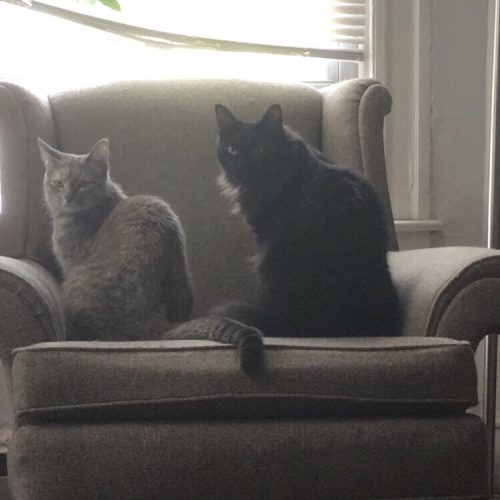
Our father is worried that if he lets us tell our story it will come out sounding like The Art of Racing in the Rain by Garth Stein.
He’s worried if he lets us tell our story it will read as cute and sappy and that the people of the internet will ridicule him for it.
But our father needs to get over himself and you, you ridiculous people, so do you.
We were born under a house next to a Food Lion grocery store in Hertford County, North Carolina.
This is what we are told, we don’t remember this.
We have different colored hair, one is gray and one is black.
We had a brother but he died in the cage with us after we were captured by a man in a truck and driven to a fenced-in facility where there were other people who looked like us, all in cages.
We were given ‘D’ names when we were brought to the facility.
Diesel, Delta, and Dax.
Dax is our brother who died.
We don’t remember our birth parents.
The person in the cage above us was old and alone and no one wanted to adopt her.
The facility smelled bad and there were holes in the floor taped over with duct tape.
Our adoptive parents visited us a couple of times before they chose to take us home.
And they changed our names from Delta and Diesel to Tammy Wynette and Possum because our mother likes country music.
We changed their names from adoptive mother and adoptive father to mother and father.
Our mother has blonde hair and blue eyes.
Our father has brown hair and hazel eyes.
He didn’t want to adopt us.
Our mother wanted us and so she made the decision.
But at first it was only going to be for a few weeks.
Our father picked us up and took us home because our mother was at her insurance-selling job she hated so much.
Our father worked part time at a pharmacy.
He always finds a way to work part time.
He brought us home and played with us and sat us on his belly.
We had dead fleas in our hair and feces on our faces and we were very small.
Our mother came home from work and played with us too.
She didn’t want to leave us alone.
One day she noticed we were sneezing and wheezing when we were breathing.
Our father wasn’t worried about it but our mother was worried and took us to the vet.
We had respiratory infections and were prescribed clavamox which was a pink fluid that they injected down our throats.
Our father said it smelled like bubble gum.
After a few weeks our mother spoke to our father about keeping us longer.
She wanted to completely adopt us.
He was hesitant.
They went to California—where our father grew up—for Thanksgiving, but they didn’t take us with them.
Instead, they drove us down the street to our mother’s mother’s house.
Our grandmother was larger than our mother and our mother was worried she’d give us too much food.
So before she flew away in an airplane, our mother told her mother not to overfeed us because she didn’t want us to get large too.
Our grandmother told our mother to relax and that she would follow all of our mother’s instructions.
Our parents had a big fight when they were in California and when they came home we could tell something was wrong.
They came from different backgrounds, our father grew up near a Whole Foods and our mother didn’t.
So they were mad at each other but then they were mad at our grandmother because when they came to pick us up our bellies were swollen and we couldn’t run or jump the way we like to.
This was because our grandmother fed us as much as we wanted.
She kept our bowls full when she left the house and she liked to give us treats.
Our mother was disappointed in our grandmother.
They took us home and it took a week or two but they resolved whatever problem they’d had with each other in California and our bellies grew smaller and we could jump onto the bed again and onto the kitchen counter.
But then our father didn’t love us.
That’s what he said to our mother one night when they lay in bed.
And that’s the correct usage of ‘lay.’
We know how difficult it can be to get that right, the “lay vs. lie” thing.
But our father cares about things like that, he pays attention to things that don’t matter.
Anyway, as we were saying, one night our father whispered that he didn’t think he loved us or cared about us.
It was after a day when we’d both stepped in our own mess in the litter box and tracked it around the house.
He hated the smell and we did too but we weren’t sure how to not step in our mess yet.
And whenever we stepped in our mess our father immediately undressed and grabbed us by the scruffs of our necks and got in the shower with us and washed our paws with warm water and a soap that smelled like coconuts and he held our butts up to the shower faucet.
So it was after one of those days.
And another problem was he’d read online about a parasite that lives in cat feces called toxoplasma gondii.
Toxoplasma gondii can make a person angry and suicidal and at the time our father was angry and suicidal and so he blamed it on our feces and, in turn, on us.
Every time he slammed a kitchen cabinet shut he thought it was because of a parasite in his brain and every time he felt like life was too much he thought it was because of a parasite in his brain.
And he didn’t love us or care about us.
Okay.
READ MORE >